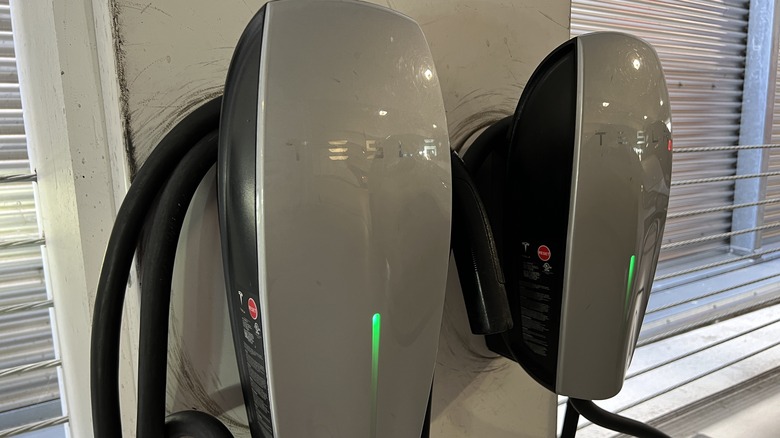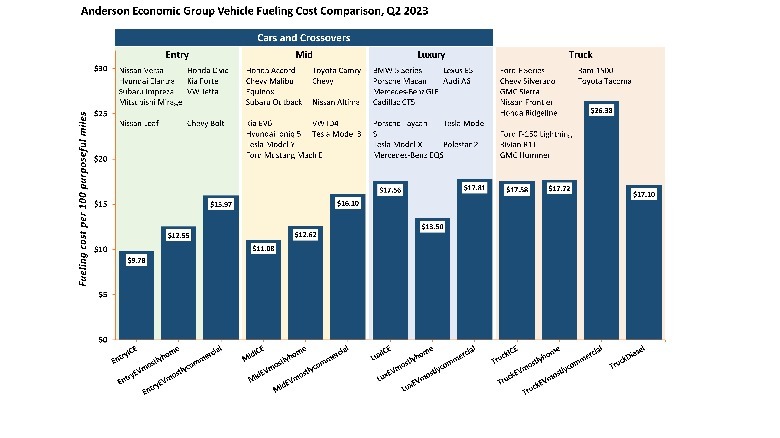Will An EV Actually Save You Money? This One Crucial Factor Makes The Difference
In addition to fighting back against climate change by reducing carbon emissions, one of the major supposed advantages to driving an EV versus a traditional gas car is lower fueling costs.
In a time where gas prices are fluctuating wildly, a different means of fueling is definitely appealing. The thing is, in many cases, the precise cost of recharging an EV with electricity isn't all that different from refueling a traditional car with gas.
A recent report released by Anderson Economic Group outlines fuel costs for both traditional cars and EVs for the first half of 2023, and the results are interesting. It has actually been cheaper to refuel most traditional cars at the gas station in the last few months than it has been to charge up an EV at a designated charging station.
Entry to mid-level internal combustion engine cars were found to be at least $1-3 cheaper than EVs when refueled for a 100-mile journey. Luxury EVs managed to beat out luxury gas cars by around $3 on charging costs, while gas and EV pickup trucks were roughly the same.
The major money-saving factor
Based on AEG's findings, there is one crucial factor that determines the overall viability of recharging an EV versus refueling a car — whether you can recharge the vehicle at home, or have to go to a charging station.
If you can recharge at home, not only do you save power that would be expended on a trip to the station, but you also get variable recharge rates. Yes, you have to pay your own power bill, but at least it's a single bill, as opposed to a separate charge and tax incurred when using a gas station charger.
Granted, if you own a low to mid-grade EV, your recharging costs at home are only a little bit cheaper overall, and for the most part, they're still higher than a traditional car's refueling costs. When it comes to luxury-grade EVs, though, it's a lot cheaper to recharge at home, both for the aforementioned unlimited electricity access, and because unlike luxury gas cars, you don't need "premium" electricity to properly power an EV.
"These results underline the importance of considering real-world costs before making a buying decision," AEG said of its findings. "These include knowing how often you travel away from home, your ability to install and rely upon a home charger, the costs and availability of commercial charging, and any road taxes levied on EV drivers in your state."


